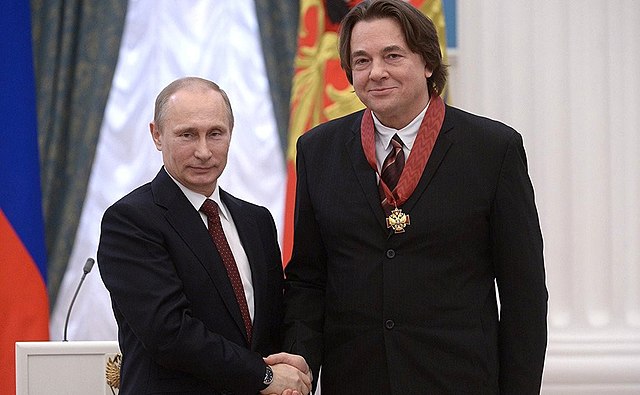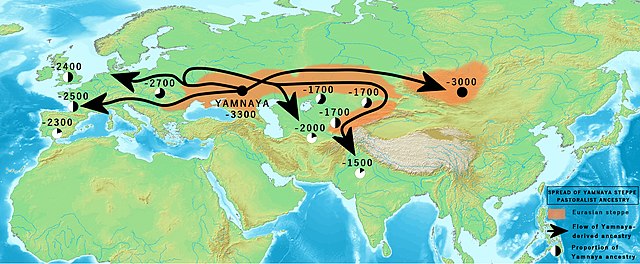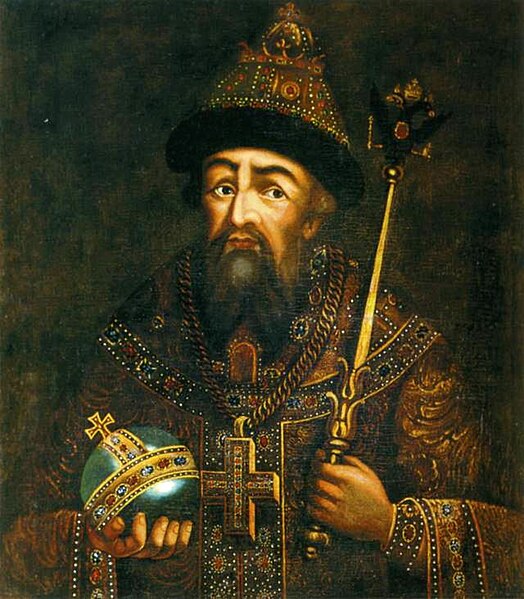The current government of Russia maintains laws and practices that make it difficult for directors of mass-media outlets to carry out independent policies. These laws and practices also hinder the ability of journalists to access sources of information and to work without outside pressure. Media inside Russia includes television and radio channels, periodicals, and Internet media, which according to the laws of the Russian Federation may be either state or private property.
Putin and Konstantin Ernst, chief of Russia's main state-controlled TV station Channel One. About 85% of Russians get most of their information from Russian state media.
Russia, or the Russian Federation, is a country spanning Eastern Europe and North Asia. It is the largest country in the world by area, extending across eleven time zones and sharing land borders with fourteen countries. It is the world's ninth-most populous country and Europe's most populous country. Russia is a highly urbanized country consisting of 16 population centers with over million inhabitants. Its capital as well as its largest city is Moscow. Saint Petersburg is Russia's second-largest city and cultural capital.
Bronze Age spread of Yamnaya Steppe pastoralist ancestry between 3300 and 1500 BC, including the Afanasievo culture of southern Siberia
Sergius of Radonezh blessing Dmitry Donskoy in Trinity Sergius Lavra, before the Battle of Kulikovo, depicted in a painting by Ernst Lissner
Ivan IV was the Grand Prince of Moscow from 1533 to 1547, then Tsar of Russia until his death in 1584.
Battle of Vyazma by Peter von Hess





